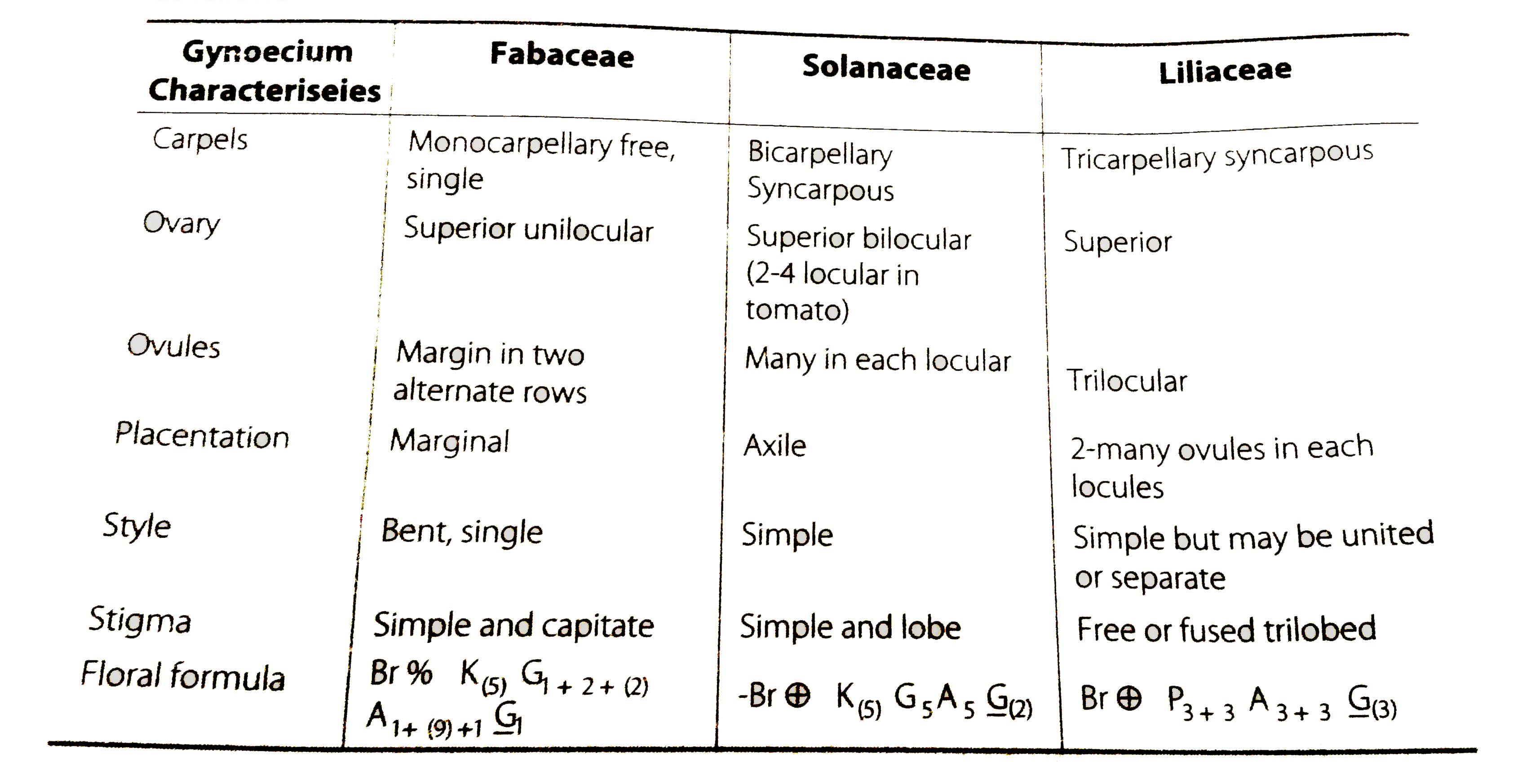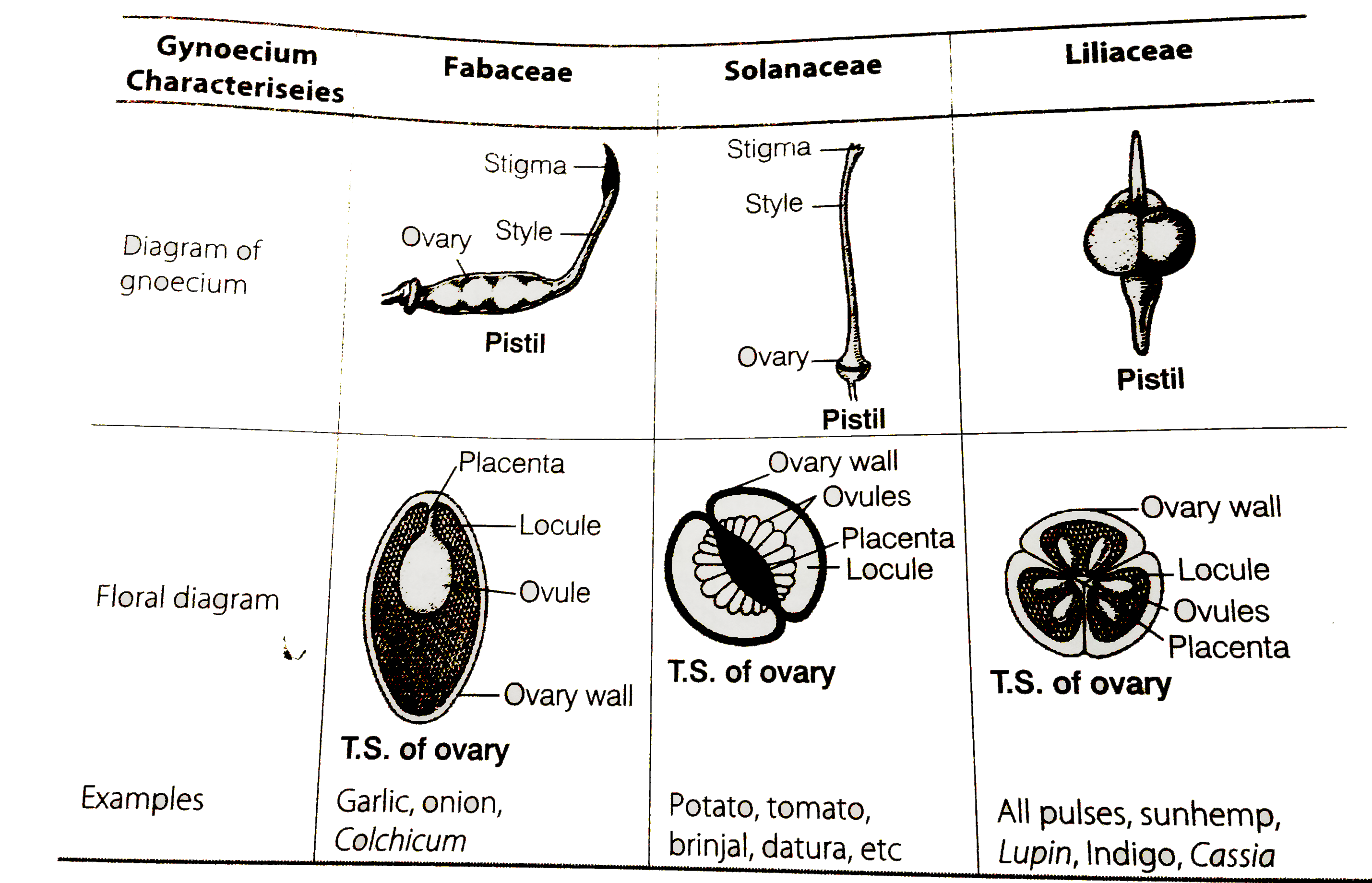Distinguish between families-Fabaceae, Solanaceae, Liliaceae on the basis of gynoecium characteristics (with figures). Also write economic importance of any one of the above family.


Economic Importance of Fabaceae
Plants of this family are the sources of pulses and edible oils. Dye is extracted from Indigofera which is a plant of this family. It serves as a source of various other products like fibres (sunnhemp ), facter (Sesbania and Trifolium), ornamentals (lupin, sweet pea ) and medicine (multiathi).
Topper's Solved these Questions
- MORPHOLOGY OF FLOWERING PLANTSBOOK - NCERT EXEMPLARCHAPTER - MORPHOLOGY OF FLOWERING PLANTSEXERCISE - Short Answer Type Questions
14 Videos
- MINERAL NUTRITIONBOOK - NCERT EXEMPLARCHAPTER - MINERAL NUTRITIONEXERCISE - Long Answer Type Questions
8 Videos
- NEURAL CONTROL AND CO-ORDINATIONBOOK - NCERT EXEMPLARCHAPTER - NEURAL CONTROL AND CO-ORDINATIONEXERCISE - LONG ANSWER TYPE QUESTIONS
3 Videos
Similar Questions
Distinguish between families Fabaceae, Solanaceae and Liliaceae on the basis of gynoecium features.
View SolutionWrite the economic importance of family Solanaceae.
View SolutionWrite the economic importance of family Liliaceae.
View SolutionWrite the economic importance of family Fabaceae.
View SolutionTo which family pulses belong? Write the economic importance of that family.
View SolutionOne Minute Revision |Family Fabaceae|Vegetative Characteristics |Floral Characteristics |Floral Formula And Diagram |Economic Importance
View SolutionGive a scientific description of family Liliaceae. Mention the economic importance.
View SolutionGive the floral characteristics of any typical member of the family Solanaceae. Give botanical names of five economically important plants of the family.
View SolutionTake one flower each of families Fabaceae and Solanaceae and write its semitechnical description. Also draw their floral diagrams after studying them.
View SolutionTake one flower each of families Fabaceae and Solanaceae and write its semitechnical description. Also draw their floral diagrams after studying them.
View Solution
